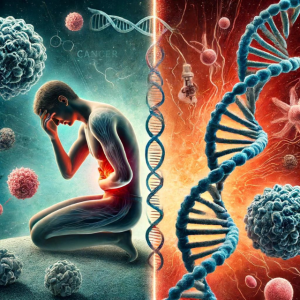Hello, Dr. Vicki Peterson here. I wanted to speak to you today about the association between cancer, specifically lymphoma, and celiac disease. We’ve always known there was a high correlation between these two. A recent study, published this past August in the American Journal of Hematology, highlighted this link. Hematology is the study of blood, and lymphoma is a blood cancer that resides in the lymphatic system, which helps remove toxins from the body.
In this study, researchers followed 300 patients diagnosed with celiac disease over the past 30 years. They found a six-fold increase in lymphoma cases among these patients—six times what they would expect in the normal non-celiac population. What was interesting about the patients who developed lymphoma was some commonalities: the celiac disease was diagnosed later in life, and the patients suffered from symptoms of diarrhea, abdominal pain, and weight loss. These symptoms were more common among those who developed lymphoma.
The researchers concluded that adults with symptoms like abdominal pain, weight loss, and diarrhea should be evaluated for celiac disease because it likely influences the increased risk of cancer. If you’ve had celiac disease most of your life and it’s undiagnosed, you’re not going to absorb nutrients well. Your small intestine, which houses eighty percent of your immune system, will be severely compromised, allowing cancer cells to infiltrate more easily. The immune system, based in the small intestine, is weakened by celiac disease, making it less effective at killing cancer cells.
Good bacteria in the small intestine are also compromised due to celiac disease and gluten intolerance. These good bacteria help keep bad genes—those that could express disease—turned off. With celiac disease and gluten sensitivity, the numbers and strength of these good bacteria are reduced, so they can’t keep bad genes turned off. This explains the correlation.
Unfortunately, we’re stuck in the past with our celiac diagnosis, primarily looking for it in children and young adults. As people get older, we don’t evaluate them for it, thinking a genetic disease would have been expressed earlier in life. We now know that’s not always the case. It could have been missed their entire life or developed later. We only diagnose about three to five percent of our celiacs.
If you know anyone with abdominal pain, diarrhea, or weight loss, please assist them in getting evaluated for celiac disease to hopefully prevent them from developing cancer. I hope this was helpful. Please send me your questions and comments; I love to hear from you. Until next time, I wish you very good health.


